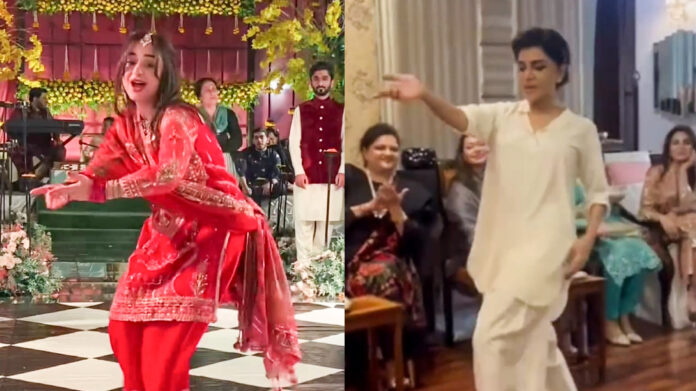In the world of social media, where every move is under the microscope and every video is subject to scrutiny, the latest trend seems to be dissecting the dance moves of female actors. It’s a bizarre spectacle, to say the least, where women are judged more harshly for their dance performances compared to their male counterparts.
Recently, the dance videos of actresses Yumna Zaidi, Iffat Umar and Fiza Ali went viral, sparking a flurry of opinions from netizens. While some admired their talent and applauded their spirit, others couldn’t resist the temptation to criticize, focusing not on the artistry of the performance but on the age or perceived appropriateness of the dances. The comments section was full of deteriorated comments, such as “Mujra Queen” and “Pagal lag rahe ho”.
Iffat Umar clapped back at the trolls saying “Meri age, meri marzi. so plzzz go live your life and stop schooling me how should I act according to my age.”
Female actors, regardless of their attire or the context of their dance, often find themselves at the receiving end of an unwarranted backlash. From Dananeer Mobeen to Hania Aamir, Mahira Khan to Mehar Bano, the list is endless. It’s as if society has a collective outrage meter calibrated specifically for women dancing in public spaces.
What’s truly perplexing is the glaring double standard at play. While female actors face censure and derogatory remarks, their male counterparts enjoy adulation and praise for similar performances. Search for “actor dancing” and you’ll encounter a stark contrast in the narratives. Male actors like Zaviyaar Ejaz, Wahaj Ali and Bilal Abbas are celebrated for their moves, hailed as dancing sensations, while women are subjected to ridicule and shaming.
The hypocrisy is palpable. Why is it acceptable for men to dance freely without judgment, while women are held to impossible standards of decorum? The answer lies in deep-rooted gender biases and societal expectations that continue to perpetuate inequality.
It’s high time we challenge these archaic norms and embrace a more inclusive and equitable mindset. Let’s celebrate talent regardless of gender and appreciate artistry without prejudice. After all, dance knows no gender, and talent knows no bounds.




